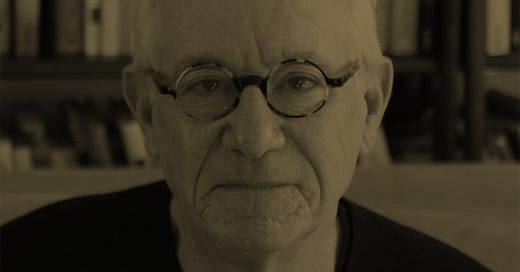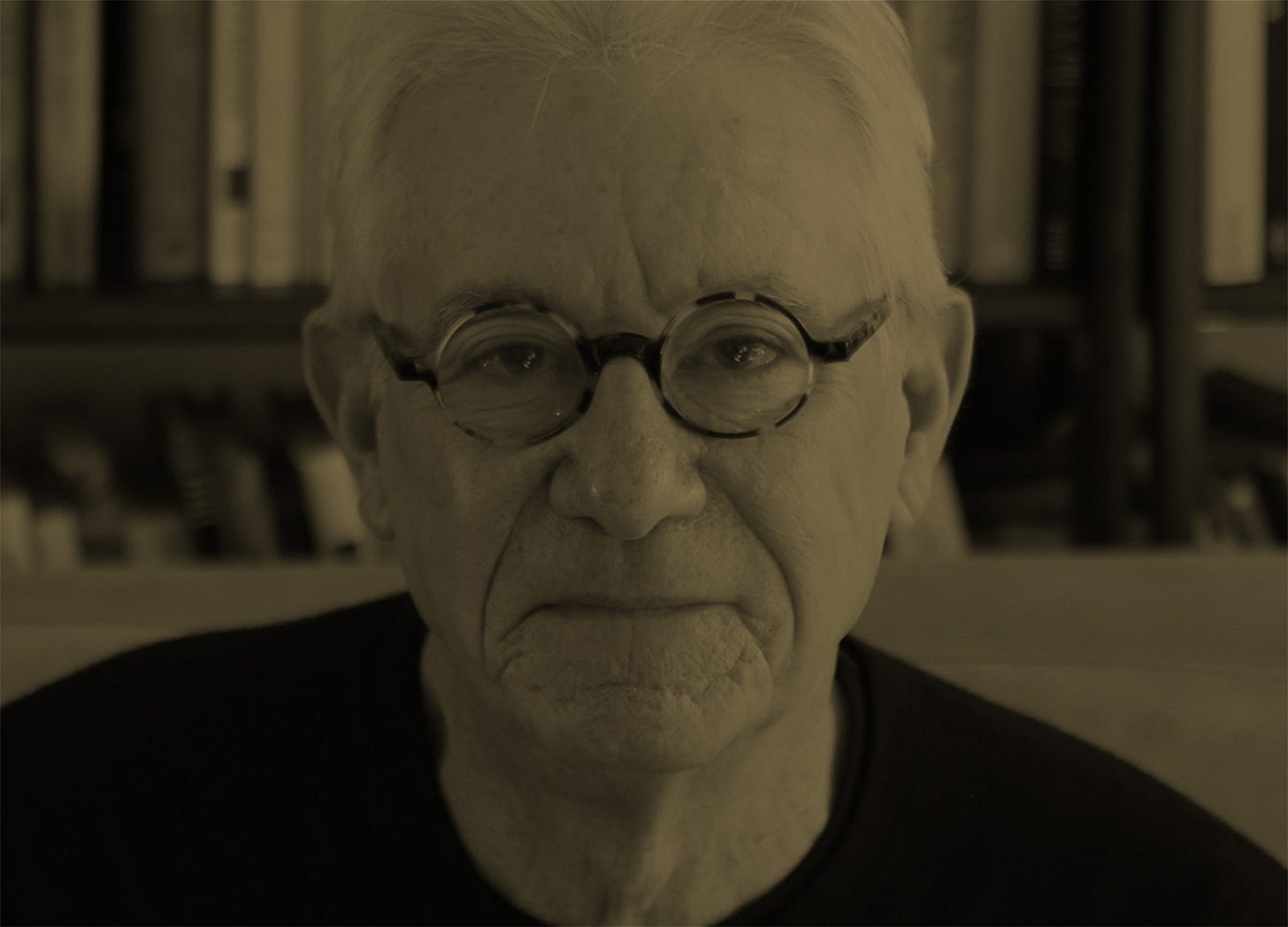The 'Days Between Stations' columns, Interview magazine 1992-2008: A Valentine to the L♥︎ve Song
February 1998
Love songs are wonderful and horrible, but there's no way to rank one over another, because that would mean ranking one person over another. You just choose; if anyone tries to get you to defend your choice, they've told you more about themselves than they probably want you to know. The love song that matters most is your song, even if it's Elton John's "Your Song."
"I don't make the mistake that high culture mongers do of assuming that because people like cheap art, their feelings are cheap, too," Dennis Potter said to critic Michael Sragow in 1987, in an interview that I find myself returning to again and again, like a touchstone, or a compass: "When people say, 'Oh listen, they're playing our song,' they don't mean 'Our song, this little cheap, tinkling, syncopated piece of rubbish is what we felt when we met.' What they're saying is 'That song reminds us of the tremendous feeling we had when we met.' ... So called dumb people, simple people, uneducated people, have as authentic and profound a depth of feeling as the most educated on Earth. And anyone who says different is a fascist." So there. I wish Potter hadn't insisted on his "cheap, tinkling, syncopated piece of rubbish." He was attempting to pin down why love songs that don't last can seal and dramatize a love that does—or forever open the wounds of a love that's gone. But if you listen hard enough, any song that can do those things will give up, if not its essential secret, shared and maybe shareable only by those for whom it is their song, then at least something great, great on its own terms.
I'm not thinking about the Rolling Stones' "Goin' Home" or Prince's "Little Red Corvette," which are the sexiest love songs I know, or Tracey Ullman's "They Don't Know," which is the sweetest, or Chris Isaak's Forever Blue, the most miserable collection of love songs in the history of Western civilization—the perfect music for someone who spends every Valentine's Day alone. I'm not thinking of anything as bitter and blasted and yearning-forgiving as Bob Dylan's "Just Like a Woman," or for that matter anything at all by Jakob Dylan, who every female person of my acquaintance, regardless of age, religion, or political affiliation, thinks is the cutest thing currently walking on two legs. I'm thinking of Vanessa Williams, and "Save the Best for Last."
When it was number one in the country, in 1992, it sounded like pure gloss, an absolute confection—the song was so well-written you could all but hear it being written. It sounded as if it had been arranged by a committee, and Williams seemed to sing it as if she were hitting chalk marks on a stage. Still, if "Save the Best for Last" was the sound of money far more than the sound of love, as a national hit it also carried enormous baggage, and its sound was also the sound of that baggage being left behind for good. As a construction, as a piece of music that was absolutely made up, that had not an instant of naturalism, that made authenticity into a word from a foreign language, "Save the Best for Last" was made only to succeed, to score, but here success also meant freedom.
You remember Vanessa Williams. In 1983 she became the first African-American Miss America; then Penthouse published a set of nude sex photos she and another woman had posed for years before, and Williams had to give up her crown. As someone wrote at the time, when people heard about the scandal and Williams's punishment, they said "I don't think it's fair"; when they saw the pictures they said "Burn her at the stake." In fact, Williams was meant not merely to be punished by some self-appointed governing body, but collectively banished into what film critic Manny Farber called "the great American nightmare," where "some monstrous error can drive individuals clean out of society into a forlorn no man's land, to be the lonely objects of an eternity of scorn, derision, and self-humiliation." In the Victorian age, Williams's fate would have been prostitution. In 1983, she could have made a fortune as a porn star—if, in other words, she'd been willing to admit she'd been a whore from the start.
Instead she quietly fought her way back. Unlike other Miss Americas, she tried to learn a craft, actually to be good at something; unlike other Miss Americas, who were wholesome or pretty, Williams became more beautiful as she got older. And just as the song that can seal a love reveals its greatness as it does so, as a singer Williams reached the point where she could reveal the greatness of a song herself.
Is "Save the Best for Last" a love song at all? It is so well-written and so well-arranged that it hangs in the air in perfect balance, like a soap bubble. The slightest rush of air, a single word sung too forcefully, would have destroyed it. The painful hesitations in Williams's every note convey how carefully she had to navigate the all-but-lost romance that's the subject of the song; they also signify the way she had to learn to walk and talk when the nation turned its face from hers. The best that's saved for last can be the recognition that finally passes between the singer and the man she wants as the song ends. It's also the success, the vindication this particular song less seeks than it embodies as a piece of craft.
But all of that is just what is loaded into the performance, what a listener brings to it, what Williams brought to it: real life, real history, a demand for a real future. The delicacy of the whole affair, Williams walking on high heels through land mines, draws you in; if you can get lost in the song, you glimpse what perfect balance might be, and glimpse, too, the perfect illusion that it might last. Williams fades from the song as its subject; she's a medium, just a guide to your own life. Then the song fills up. Even if you don't hear the song as yours, you can be overwhelmed by the sudden room it makes for all those whose it might be, and if that doesn't make your heart throb you haven't got one.
Originally published in Interview Magazine, February 1998





I was hoping that singing the songs of the Great American Song Book would inspire Dylan to write one himself but so far he has not. His songs are about lost love, obsessive love; unrequited love, abandoned love, or fantasies above love. Not to say they aren't great songs but for me not great love songs! Do you have a favorite Dylan love song? -Nancy
I used to think I didn't like "love songs" that much, then realized we were raised on some of the most sublime love songs ever sung: "Tonite Tonite" by the Mello Kings, "There's a Moon Out Tonight" by the Capris, "Desiree" by the Charts, right into "Save the Last Dance for Me" by the Drifters. Aspirational songs, because I was still a preteen studying to be "A Teenager in Love." And "In the Still of the Night" by the Five Satins, the perennial number one on oldies radio until these oldies got too old, and got replaced by a new/oldies generation's "Stairway to Heaven." Which is not a love song.